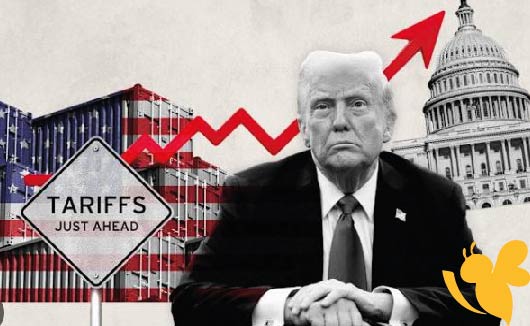Donald Trump's proposed 100% tariffs on films produced outside the United States have raised significant concerns within Australia's film industry. The announcement, which cites a decline in Hollywood and increased foreign competition as motivations, poses a direct threat to Australian productions that rely heavily on international distribution. The potential implementation of these tariffs could severely hinder the financial viability of films like “Thor: Ragnarok”, which have benefited from global markets. Without access to the lucrative US audience, many Australian filmmakers may struggle to secure funding and reach profitability.
Trump said he was authorising the US Department of Commerce and Trade Representative to start the process to impose the levy because America's movie industry was dying "a very fast death".
He blamed a "concerted effort" by other countries that offer incentives to attract filmmakers and studios, which he described as a "National Security threat".
"It is, in addition to everything else, messaging and propaganda!" Trump said on his Truth Social platform. "WE WANT MOVIES MADE IN AMERICA, AGAIN!"
Just under half of the $1.7bn spent on screen production in Australia during 2023-24 was on international productions, with $767m spent making foreign film and television.
It’s not yet clear how the tariffs might be imposed but they could also affect the export of Australian content to the US market, potentially making tickets more expensive for films such as George Miller’s Mad Max series.
In Trump’s announcement on social media, he described film incentives as a threat to the US by foreign nations.
Streaming networks are largely owned by the big Hollywood studios but — aside from Netflix — have taken years to turn a profit. Disney+ just turned its first profit, as did Max, which shares ownership with CNN. Many other streamers have yet to make money.
But placing tariffs or other trade barriers on foreign-made products may not make business any easier for Hollywood studios. Many American movies and shows are shot on location outside the United States. In addition to tax breaks, many foreign staff demand cheaper pay, making some movies more economically viable to produce.
Trump has lambasted non-tariff trade barriers that other countries place on the United States, but he has so far limited America’s retaliation to traditional tariffs on goods. Trump has imposed a universal 10% tariff on most goods coming into the United States and put in place — then delayed — even more substantial “reciprocal” tariffs on dozens of other nations. He has also placed 25% tariffs on steel, aluminum, autos, auto parts and some goods from Canada and Mexico. And he put a massive 145% tariff on imports from Canada.
The Australian government has expressed its commitment to defending the local film industry against these tariffs. Such protective measures are critical not only for preserving cultural diversity but also for maintaining employment within the sector . As Australia emerges as a popular filming location due to its scenic landscapes and tax incentives, any barriers imposed by US tariffs could undermine this competitive advantage. The broader implications for both the US and Australian film industries remain uncertain; however, it is clear that Trump's policies could reshape international cinematic collaboration significantly .
Read more
Texas measles cases reach 683, according to state health officials Girona vs. Mallorca - prediction, lineups and live stream Info.Sarah H
Also on site :
- Texas measles cases reach 683, according to state health officials
- The Equalizer viewers hail ‘perfect’ last episode after CBS cancels series
- Budget Bites: Spring dinners that feel fancy (but take less than half an hour)

